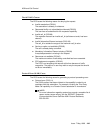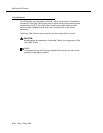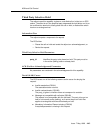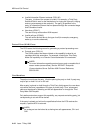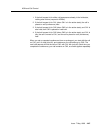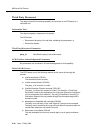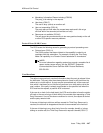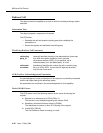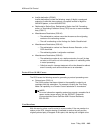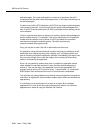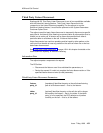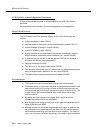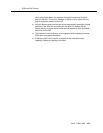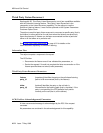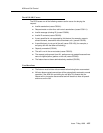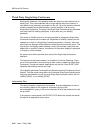
ASAI and Call Control
Issue 7 May 1998
4-49
■ Invalid destination (CS3/43)
Invalid destinations include the following: empty (0 digits), unassigned
extension (invalid dial plan numbers), incomplete number of digits for
AAR/ARS pattern, or non-AAR/ARS FAC.
■ Redirected-to Station Busy, Redirected-to Station has Call Forwarding
active, or Terminating Extension Group (TEG) has one or more members
busy (CS0/17)
■ Miscellaneous Restrictions (CS3/42)
— The redirected-to number cannot be the same as the originating
number or the redirecting number.
— The call is redirecting on the first leg of a Switch-Classified call.
■ Miscellaneous Restrictions (CS3/43)
— The redirected-to number is a Remote Access Extension, or the
COR check fails.
— The redirecting station is origination-restricted.
■ Miscellaneous Restrictions (CS3/63)
— The redirecting number is not a station extension, the call_id does
not exist, or the call is not in the alerting state or is redirecting while
in vector processing.
— Calls that result in intercept treatment will not be allowed to redirect
even if normally such calls would be sent to an attendant.
Protocol Error (NAK) Causes
The ECS issues the following cause for generating a protocol processing error:
■ Protocol error (CS0/111)
The Q.932 protocol has been violated or the capability invoked is not
consistent with this association. For example, invoking the Third Party
Make Call capability on a Domain Control association is inconsistent.
NOTE:
For more information regarding protocol errors and a complete list of
reason codes (cause values), see the
DEFINITY Enterprise
Communications Server CallVisor ASAI Protocol Reference
,
555-230-221.
Considerations
With this service, when a call is routed to a new number, if the new number is a
station on the ECS, it begins alerting (if available to receive the call) and the
originally-alerted party is dropped. At this point, this alerting call is eligible to be



